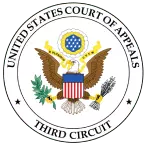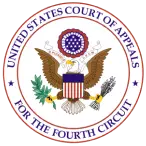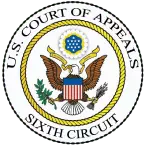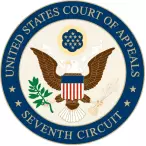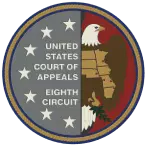The consequences are far-reaching: a damaged reputation, shattered career, and strained relationships. Don’t let it hold you back. You need to challenge your conviction and sentence with the assistance of a professional.
At Elizabeth-Franklin Best, our federal appeals lawyer has a history of successfully challenging federal convictions and sentences for professionals like you.
By leveraging our deep understanding of the appeals process and thoroughly examining your case, we can help you regain your freedom and restore your good name.
Are you ready to challenge your conviction and sentence? Call Elizabeth Franklin-Best in Columbia, SC, now to find out how our federal criminal appeals attorneys can help.
What Is a Federal Criminal Appeal?
A federal criminal appeal—also known as a “direct appeal”—offers an opportunity to convince the Circuit Court of Appeals that legal errors were made during your trial, plea, or sentencing that warrant a reversal of your conviction or, in some cases, a resentencing.
Appeals differ from trials or other lower court proceedings in several ways:
- New evidence cannot be introduced
- Witnesses cannot be called
- A panel of judges hears your case instead of a single judge
- The facts of your case are restricted to the “record on appeal,” which includes the trial court transcripts and any evidence presented during your trial or sentencing hearing
Our role is to analyze the record in your case, identify the trial court’s legal errors, research the relevant legal issues, and present those errors to the court of appeals as persuasively as possible.
Experienced Criminal Appellate Lawyers: Our Practice Areas
At Elizabeth Franklin-Best, our experienced criminal appellate lawyers focus on a range of practice areas, ensuring that our clients receive the highest quality representation no matter the type of case they face.
Below are some of the areas our firm handles:
- Bank & mortgage fraud — charges involving using fraudulent schemes or misrepresentations to obtain bank loans or mortgages or defrauding financial institutions through illegal activities
- Drug trafficking — charges associated with the manufacturing, distribution, or sale of illegal drugs on a local, national, or international scale
- Firearm convictions — charges stemming from the unlawful possession, sale, use, or trafficking of firearms or the commission of a crime involving a firearm
- Healthcare fraud — charges related to fraudulent activities in the healthcare industry, such as billing for services not rendered, upcoding, or accepting kickbacks
- Hobbs Act & public bribery corruption — charges under the Hobbs Act for extortion or robbery affecting interstate commerce and charges involving bribery or corruption of public officials
- Mail & wire fraud — charges involving mail, telephone, or other electronic communication to engage in fraudulent schemes or obtain money or property under false pretenses
- RICO & conspiracy — charges under the Racketeer Influenced and Corrupt Organizations Act (RICO), which targets organized crime, and charges for conspiring to commit a criminal act
- Securities fraud — charges related to fraudulent activities in the securities market, such as insider trading, stock manipulation, or misrepresenting financial information to deceive investors
- Tax fraud — charges stemming from intentionally underreporting or misrepresenting taxable income or engaging in fraudulent schemes to evade taxes
- White-collar crime — charges encompassing a wide range of nonviolent, financially motivated crimes, such as embezzlement, insider trading, money laundering, and fraud committed by business professionals
Appealing a Criminal Case in Federal Court: Process
Appealing a case in federal court is a complex and multi-step procedure that requires attention to detail, thorough knowledge of the law, and strong legal advocacy skills.
Here is an overview of the key steps in the federal appellate process.
Step 1: Filing the Notice of Appeal
The first step in the federal appeals process is filing a notice of appeal with the trial court. Depending on the specific jurisdiction, this generally must be done within 14 days from the entry of judgment. The notice of appeal is a brief document that informs the trial court and opposing party of your intention to appeal the decision.
Step 2: Preparing the Joint Appendix
Once the notice of appeal has been filed, the parties will prepare the record on appeal or joint appendix, depending on the jurisdiction. The Record on Appeal or JA includes the trial transcripts, exhibits, and other relevant case documents. These documents are essential, as they constitute the lower court record in your case.
Step 3: Appellant’s Brief
The appellant’s brief, or “opening brief,” is critical to the appeals process. In this document, your attorney will present the legal arguments and authorities supporting your claim that the trial court made errors warranting reversal or a new trial.
This brief must be meticulously researched, well-organized, and persuasively written to effectively communicate your position to the appellate court.
Step 4: Response Brief
After the appellant’s brief is filed, the government will respond with a response brief. This brief will counter the appellant’s arguments and attempt to justify the trial court’s decisions.
Step 5: Reply Brief
The appellant may file a reply brief replying to the government’s response brief. This allows the appellant to address any new arguments or points raised and further strengthen their case before the appellate court.
Step 6: Oral Arguments
In some federal appeals, the appellate court will schedule oral arguments, during which each side’s attorney presents their case and answers questions from the panel of appellate judges.
Oral arguments typically last about 30 minutes per side and allow the judges to clarify their understanding of the issues at stake.
Step 7: Appellate Court Decision
After reviewing the briefs, record on appeal, and oral arguments (if applicable), the appellate court will issue a written decision. This decision may affirm the trial court’s judgment, reverse the conviction or sentence, or remand the case to the trial court for further proceedings.
Types of Federal Appeals
When facing a federal criminal conviction, it’s crucial to understand the different avenues available for challenging the outcome of your case. In federal criminal cases, direct appeals are the primary means of challenging a conviction or sentence.
However, if a direct appeal is unsuccessful or the right to appeal has been waived, alternative avenues for relief may still be available, such as a 2255 motion or compassionate release.
Direct Appeal
A direct appeal is the most common form of federal criminal appeal. It involves challenging a conviction or sentence directly to the appellate court, often citing errors made during the trial, such as procedural violations, incorrect application of the law, or insufficient evidence.
In a direct appeal, the defendant typically must file a notice of appeal within a specific time frame after the judgment is entered. The appellate court will then review the trial record and legal briefs submitted by both parties and may hear oral arguments before making a decision. Success in a direct appeal can lead to reversing the conviction or a sentence modification.
Post-Conviction Relief Motions
The motion to vacate, set aside, or correct sentence (28 U.S.C. § 2255) is available to federal prisoners who wish to challenge the legality of their conviction or sentence.
It is the most common post-conviction relief motion in the federal system. The grounds for filing a federal 2255 motion include ineffective assistance of counsel, prosecutorial misconduct, or other constitutional violations during the trial or sentencing process.
Compassionate Release Petitions
A compassionate release allows for the early release of inmates due to extraordinary and compelling circumstances, which may include factors such as the inmate’s advanced age, terminal illness, or disability, provided that the inmate does not pose a risk to the safety of other individuals or the community.
The primary goal of compassionate release is to address situations where continued incarceration would be unjust or pose a significant risk to the inmate’s health. Common grounds for compassionate release include terminal illness, COVID-19, and family circumstances.
Federal Appellate Courts
Our federal attorneys hold licenses in the following federal and state jurisdictions:
- Second Circuit Court of Appeals
- Fourth Circuit Court of Appeals
- Fifth Circuit Court of Appeals
- Ninth Circuit Court of Appeals
- Tenth Circuit Court of Appeals
- Eleventh Circuit Court of Appeals
- United States Supreme Court
- South Carolina State Courts
- New York State Court
We accept clients charged with federal crimes and those convicted in either state or federal court. Our federal habeas corpus attorneys also represent clients in federal habeas proceedings and post-conviction matters, ensuring comprehensive legal support throughout the entire process.
Why Choose Us as Your Federal Criminal Appeals Lawyers
Selecting the right legal representation for your federal criminal appeal is crucial to securing the best possible outcome.
Here’s why you should choose us as your federal criminal appeals lawyers:
- Experience — Our attorneys possess in-depth knowledge and experience in federal criminal law, having successfully represented clients in various cases.
- Dedication — We are committed to providing personalized attention to each case, thoroughly examining every detail to develop the most compelling legal arguments.
- Strategic approach — Our lawyers employ a strategic approach, combining research, legal analysis, and persuasive advocacy to effectively present your case to the appellate court.
- Track record — Our proven track record of success in federal criminal appeals cases showcases our ability to navigate the complexities of the appellate process and obtain favorable results for our clients.
- Accessibility — We understand the importance of maintaining open lines of communication with our clients, ensuring they are informed and involved every step of the way.
By choosing us as your federal criminal appeals attorneys, you can trust that your case will be handled with expertise, dedication, and a relentless pursuit of justice.
Contact Elizabeth Franklin-Best to Appeal a Criminal Conviction or Sentence
Don’t let a criminal conviction define your future.
With Elizabeth Franklin-Best on your side, you have an experienced and skilled federal criminal appeals attorney dedicated to fighting for your rights and overturning your conviction.
If you believe that legal errors were made during your trial, plea, or sentencing, now is the time to take action. Contact us today to discuss your case and explore your options for appealing your criminal conviction.
FAQ: Federal Appeals
How long do I have to file a federal criminal appeal?
Typically, you have 14 days from the entry of judgment to file a notice of appeal in a federal criminal case. It is crucial to adhere to this deadline, as failure to do so may result in losing your right to appeal.
Can I introduce new evidence in a federal appeal?
No, federal appeals are limited to reviewing the trial court’s record and determining if legal errors were made. New evidence cannot be introduced during an appeal, and the appellate court will not consider facts beyond those in the trial court’s record.
What are the possible outcomes of a federal appeal?
There are several possible outcomes for a federal appeal, including:
- Affirmance — The appellate court upholds the conviction and sentence, agreeing with the trial court’s decisions.
- Reversal — The appellate court overturns the conviction or sentence, finding that legal errors were made during the trial or sentencing process.
- Remand — The appellate court sends the case back to the trial court for further proceedings, such as a new trial or resentencing.
How long does the federal appeals process take?
The federal appeals process can take anywhere from several months to over a year, depending on the complexity of the case and the workload of the appellate court. It is important to be patient during this process, as your attorney will be working diligently to prepare and present the strongest possible arguments on your behalf.






















